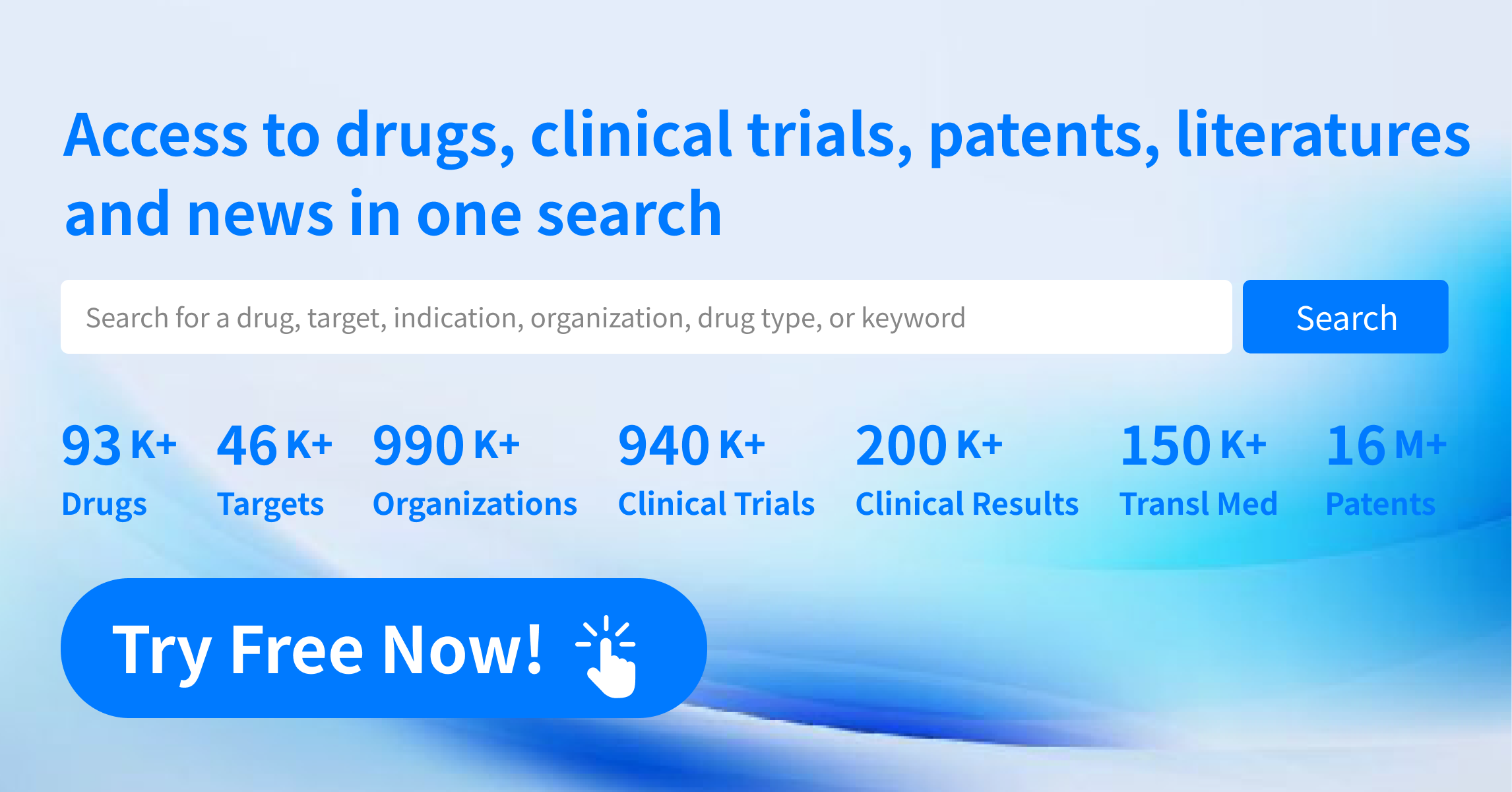Pharma Frontiers: Daily Digest of Global Pharmaceutical News – Sep 13
1.Johnson & Johnson's Tremfya Approved by FDA for Treatment of Ulcerative Colitis
On September 11, Johnson & Johnson announced that the U.S. FDA has approved Tremfya (guselkumab, Guselkumab Monoclonal Antibody) for the treatment of adult patients with moderate to severe active ulcerative colitis (UC). The company claims that Tremfya is the first and only approved dual-action inhibitor targeting Interleukin 23 (IL-23) for the treatment of active ulcerative colitis, reinforcing Johnson & Johnson’s leadership in the field of inflammatory bowel diseases.
Guselkumab is the world's first approved IL-23 inhibitor, selectively binding to the p19 subunit of IL-23 to inhibit its interaction with the IL-23 receptor, showing effective treatment across various autoimmune diseases. It also binds to receptor CD64 on cells that produce IL-23. Currently, it is approved for the treatment of plaque psoriasis, active psoriatic arthritis, and UC. Additionally, in June 2024, Johnson & Johnson submitted an sBLA to the FDA for the treatment of adult patients with moderate to severe active Crohn's disease (CD). The approval for UC indications was primarily based on data from the Phase 2b/3 QUASAR study.
2.Roche's SMA Oral Treatment Risdiplam Filed for Marketing Authorization in China
On September 12th, the CDE website announced that Roche's application for the marketing of Risdiplam tablets has been accepted, though the specific indications have not yet been disclosed. Public records reveal that Risdiplam is an innovative neuro-rare disease drug developed by Roche for the treatment of spinal muscular atrophy (SMA). The drug’s oral solution dosage form has already been approved for market in China, with this application seeking approval for a tablet formulation. SMA is one of the autosomal recessive genetic diseases that leads to infant mortality, caused by mutations in the survival motor neuron 1 (SMN1) gene resulting in functional deficiency of the SMN protein. Risdiplam is a modulator of SMN2 gene mRNA splicing. It regulates the splicing of SMN2 by dual-site specificity, promoting the retention of exon 7 and increasing the levels of functional SMN protein. The drug also penetrates the blood-brain barrier, distributes in the central and peripheral systems, and elevates the levels of SMN protein across multiple body systems while maintaining stability. Currently, Risdiplam is undergoing or has undergone evaluation in five global multicenter trials targeting SMA patients.
3.Keymed Biomedical's IL-4R Monoclonal Antibody Approved for Market
On September 12th, the NMPA official website announced that Keymed Biomedical's Sipuqibai Monoclonal Antibody (CM310) has been approved for market launch. It is indicated for the treatment of moderate to severe atopic dermatitis in adults who are inadequately controlled by topical medications or for whom topical treatment is inappropriate (acceptance number: CXSS2300090). This makes it the second IL-4R antibody drug approved globally. Sipuqibai Monoclonal Antibody, developed by Keymed Biomedical, is a high-affinity, humanized antibody targeting IL-4Rα. By targeting IL-4Rα, it blocks the signaling pathways of both IL-4 and IL-13, thereby inhibiting inflammatory responses. It is used for conditions such as moderate to severe asthma, COPD, and atopic dermatitis. In March 2021, CSPC Pharmaceutical Group and Keymed Biomedical reached an agreement granting CSPC the rights to develop and commercialize Sipuqibai Monoclonal Antibody in mainland China (excluding Hong Kong, Macau, and Taiwan) for respiratory diseases such as moderate to severe asthma and chronic obstructive pulmonary disease. CSPC also became the Marketing Authorization Holder (MAH). The deal included an upfront payment of 70 million yuan with milestone payments up to 100 million yuan, and future potential sales milestone payments and royalties.
4.Novo Nordisk’s New Generation Oral Weight Loss Treatment Data Released
On September 11th, Novo Nordisk unveiled the first phase I study data for oral Amycretin (NN9487) during the European Association for the Study of Diabetes (EASD) annual meeting. Amycretin, developed by Novo Nordisk, is an agonist for the glucagon-like peptide-1 receptor/amylin receptor (GLP-1R/AMYR). Its subcutaneous formulation (NN9490) is administered once weekly, while the oral formulation is taken daily. The results from the phase I study included three parts: Part A was a single ascending dose study, Part B was a multiple ascending dose study, and Part C where participants received 12 weeks of titrated doses of NN9487 or placebo. The doses were 3/6mg during weeks 1-2, 6/12mg during weeks 3-4, 12/25mg during weeks 5-6, 25/50mg during weeks 7-8, 25/50mg during weeks 9-10, and 50mg or 100mg during weeks 11-12. Participants had a baseline BMI of 25.0-39.9kg/m². Results showed that the body weight of participants in the 50mg and 100mg dose groups decreased by an average of 10.4% and 13.1% respectively, compared to 1.1% in the placebo group.
5.Roche Announces Positive Early Clinical Results for Oral GLP-1 Receptor Agonist
Roche presented the Phase 1 clinical trial results for their oral GLP-1 receptor agonist, CT-996, at the 2024 European Association for the Study of Diabetes (EASD) Annual Meeting. The latest findings show that CT-996 reduced body weight by 7.3% (approximately 7 kilograms) within 4 weeks in a population of obese individuals without type 2 diabetes. Encouraged by these positive results, the company plans to initiate a Phase 2 clinical trial in 2025.
This study was a multiple dosing, dose-escalation trial involving obese participants who do not suffer from type 2 diabetes. Participants received various doses of CT-996 or a placebo. In cohort 3 of patients (receiving a slower dose titration up to 120 mg), once-daily oral administration of CT-996 resulted in an average weight reduction of 7.3% over 4 weeks, compared to a 1.2% reduction with a placebo. CT-996, which is a small molecule GLP-1 receptor agonist taken once daily, was shown to provide clinically meaningful weight loss compared to placebo. Last December, Roche acquired Carmot Therapeutics for approximately $3.1 billion, obtaining several clinical-stage subcutaneous and oral incretin therapies, including CT-996.
6.Biokin Pharmaceutical Unveils Clinical Data on Dual EGFR/HER3 Antibody-Drug Conjugate (ADC)
The 2024 ESMO Congress is scheduled to take place from September 13th to 17th in Barcelona, Spain. Biokin Pharmaceutical will debut clinical data on the safety and efficacy of its EGFR/HER3 ADC (Lencotamab Monoclonal Antibody, BL-B01D1) for the treatment of urothelial carcinoma (UC), esophageal squamous cell carcinoma (ESCC), and biliary tract cancer (BTC). The study results concerning urothelial carcinoma, specifically in patients previously treated with first-line chemotherapy, have been selected for an oral presentation at the congress, demonstrating an objective response rate (ORR) of 90%. In December 2023, Biokin Pharmaceutical licensed BL-B01D1 to BMS for up to $8.4 billion, with an upfront payment of $800 million, setting a new record for the international licensing of a domestically-produced ADC, and causing significant industry excitement.
7.Sanofi Introduces a Radioactive Pharmaceutical
On September 12th, Sanofi announced that it has entered a licensing agreement with RadioMedix and an Orano Group subsidiary, Orano Med, for the development of a next-generation radioactive ligand drug. The radioactive pharmaceutical, AlphaMedix (212Pb-dotatate), developed jointly by RadioMedix and Orano Med, is a focus of interest for Sanofi. This drug is a peptide conjugate radiopharmaceutical that targets somatostatin receptors (SSTR) with alpha-particle radiation. AlphaMedix has recently completed a Phase II study for adult patients with gastroenteropancreatic neuroendocrine tumors (GEP-NET) under the ALPHAMEDIX 02 trial. In February of this year, AlphaMedix was granted Breakthrough Therapy designation by the FDA. Under the licensing agreement, Sanofi will be responsible for the global commercialization of AlphaMedix, while Orano Med will handle its production. In return, RadioMedix and Orano Med will receive a €100 million (approximately $109 million) upfront payment and up to €220 million (approximately $239 million) in sales milestone payments, and are eligible to receive tiered royalty payments.
8.Moderna’s Latest Collaboration in CAR-M Treatment for Autoimmune Diseases
On September 10th, Carisma Therapeutics and Moderna announced an expansion of their partnership, which includes the nomination of two targets for treating autoimmune diseases. These targets will be exclusively developed in collaboration by Carisma and Moderna, with Carisma retaining rights to other non-nominated autoimmune disease targets. The collaborations will utilize Carisma’s proprietary CAR-M technology and Moderna's mRNA/LNP platform to develop in vivo CAR-M therapies for autoimmune diseases. Carisma will receive research funding, and be eligible to earn payments for development, regulatory milestones, and commercialization of the products, in addition to royalties on net sales of commercialized products. Carisma will manage the discovery and optimization of candidate drugs, while Moderna will oversee their clinical development and commercialization.
How to obtain the latest research advancements in the field of biopharmaceuticals?
In the Synapse database, you can keep abreast of the latest research and development advances in drugs, targets, indications, organizations, etc., anywhere and anytime, on a daily or weekly basis. Click on the image below to embark on a brand new journey of drug discovery!




